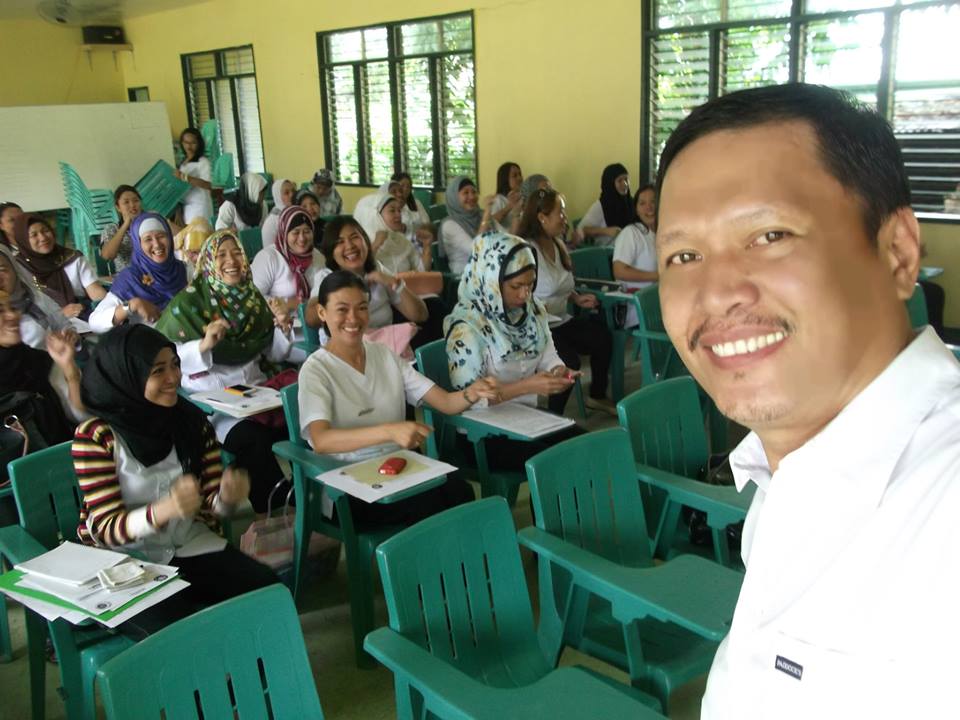by
Ebrahim L. Abo, RN, MCH
 I am a Nurse In-Charge of the Department of Education Division of Maguindanao II under Autonomous Region in Muslim Mindanao (ARMM), Philippines. We have only 53 school nurses and 1 dental aid to serve a population of nearly 100,000 school children. The region is poor and densely settled area in the southern part of the country which is currently facing high rates of helminth (parasitic worm) infections due to poor implementation of deworming activities.
I am a Nurse In-Charge of the Department of Education Division of Maguindanao II under Autonomous Region in Muslim Mindanao (ARMM), Philippines. We have only 53 school nurses and 1 dental aid to serve a population of nearly 100,000 school children. The region is poor and densely settled area in the southern part of the country which is currently facing high rates of helminth (parasitic worm) infections due to poor implementation of deworming activities.
The Asia SHN course provided me with an unparalleled opportunity to develop knowledge and skills in SHN that will make a difference to the lives of children and families in my region.
Through interactive lectures, country assignments, group work and presentations, the course encourages participants to assess SHN in a systematic evidence-based way. The aim is for health professionals like myself to strengthen our knowledge-base so that we can improve the school health policies and programmes that we are engaged with back home.
Topics covered during the course included deworming, inclusive education, school feeding, disaster prevention in school health,
WASH and health and nutrition management in schools.
One of the highlights for me was the visits to two Thai schools to learn how they had implemented high quality SHN services. At the end of the course, the participants were able to understand the different underlying concepts of school-based health approaches and to identify different approaches that they could use to make effective health policy decisions.
Practical outcomes from the course
We know that intestinal worms negatively affect the health and education of children. School-based deworming is a safe and effective means of protecting large numbers of children. In ARMM, we are facing the problem of falling attendances at school deworming events. This has been driven by parent's misplaced concern over the safety of the deworming drugs. As less children are being dewormed, more and more are becoming infected.
During the SHN course we resolved to develop an action plan to tackle this problem. Our general goal is to deworm all school-aged children in selected municipalities of Bukidnon, Maguindanao and Sarangani Provinces. For our specific goals, we will increase and scale-up coverage to all school-aged children (5-12 yrs old or Kindergarten to Grade VI) enrolled in public elementary schools.
Alongside the over-arching action plan we prepared a short-term 6 month plan for the deworming activities. As well as treating private schools and out of school youths, the plans include a large-scale community and school sensitization campaign; a referral mechanism for unexpected adverse reactions to treatment. The plan aims to strengthen the integration of deworming with other SHN interventions including, school feeding, WASH and Essential Health Care Programmes. A 1-3 year long term plans include the evaluation and the documentation of good practices. Prevalence mapping of STH infections will also be used to inform more effective resource allocation and prioritization.
Ebrahim L. Abo's attendance at the Asia SHN course was supported by
Children Without Worms.
Download all the presentations given at the 2016 Asia SHN course here.
Edited by
Francis Peel (PCD)

